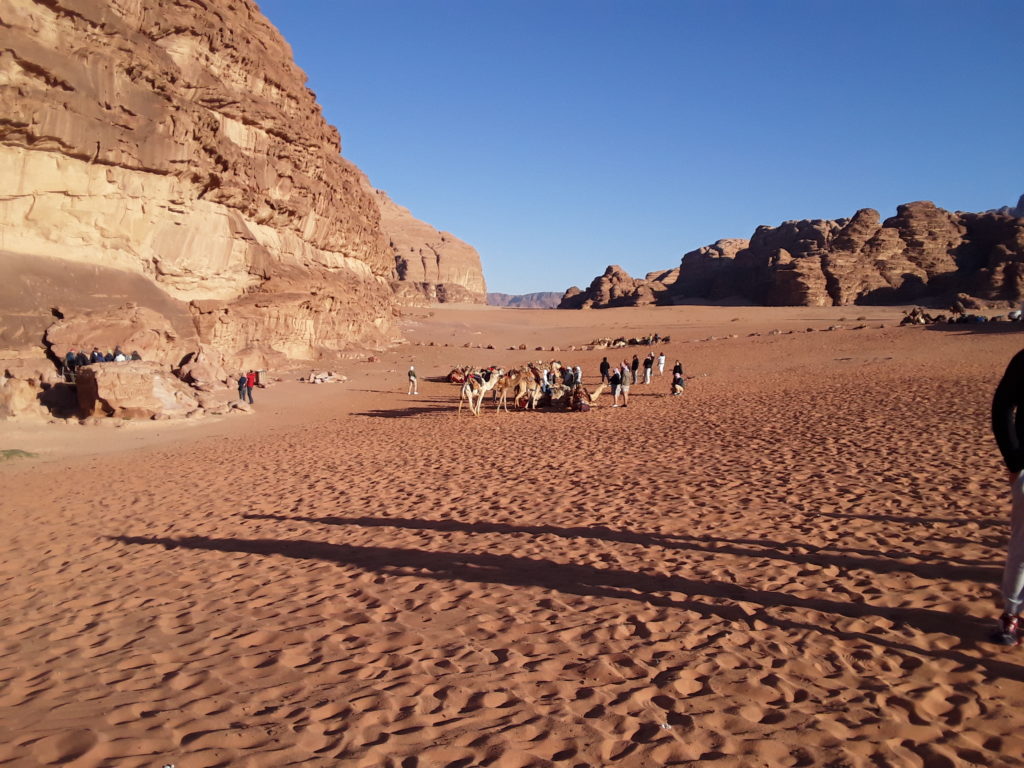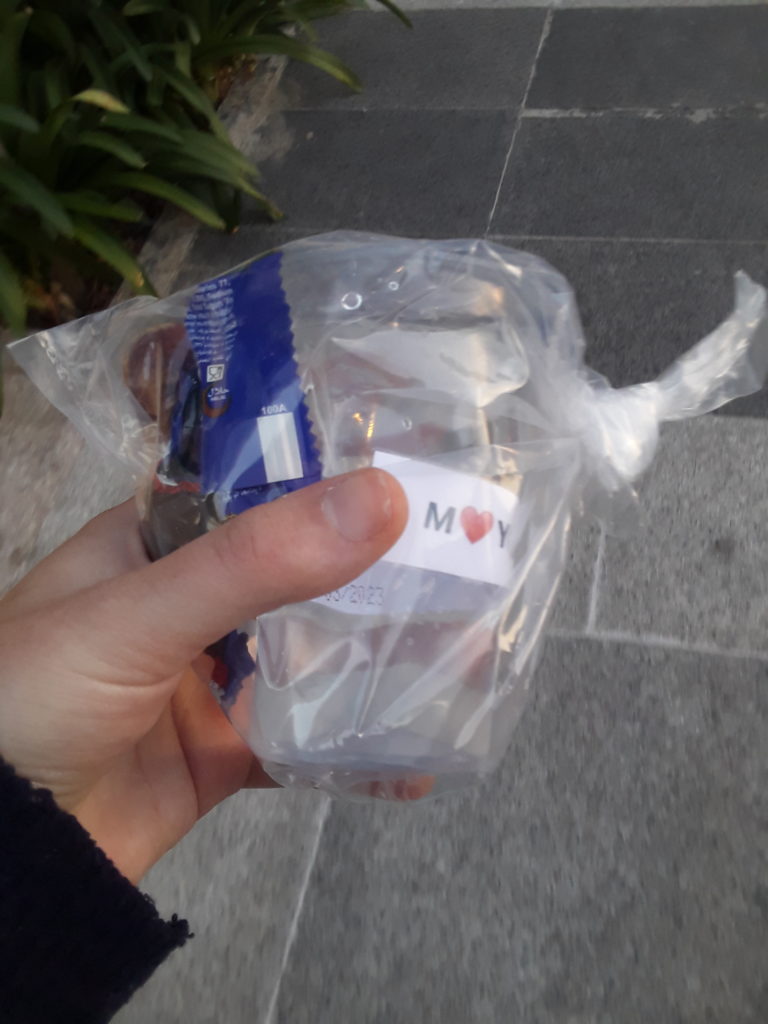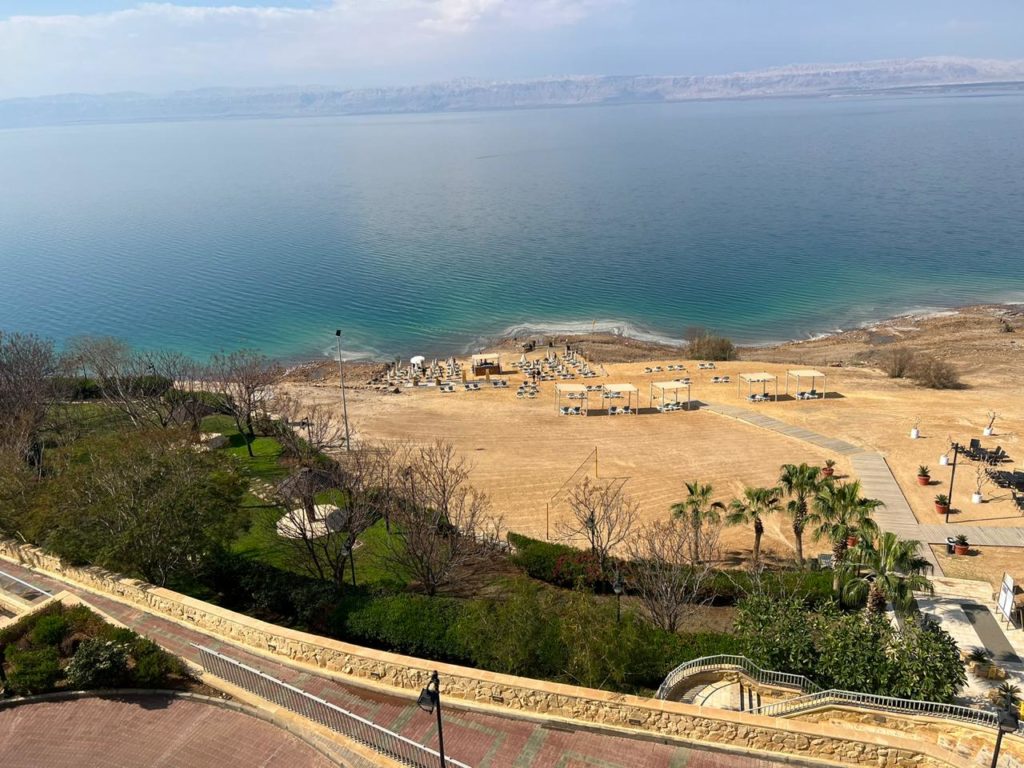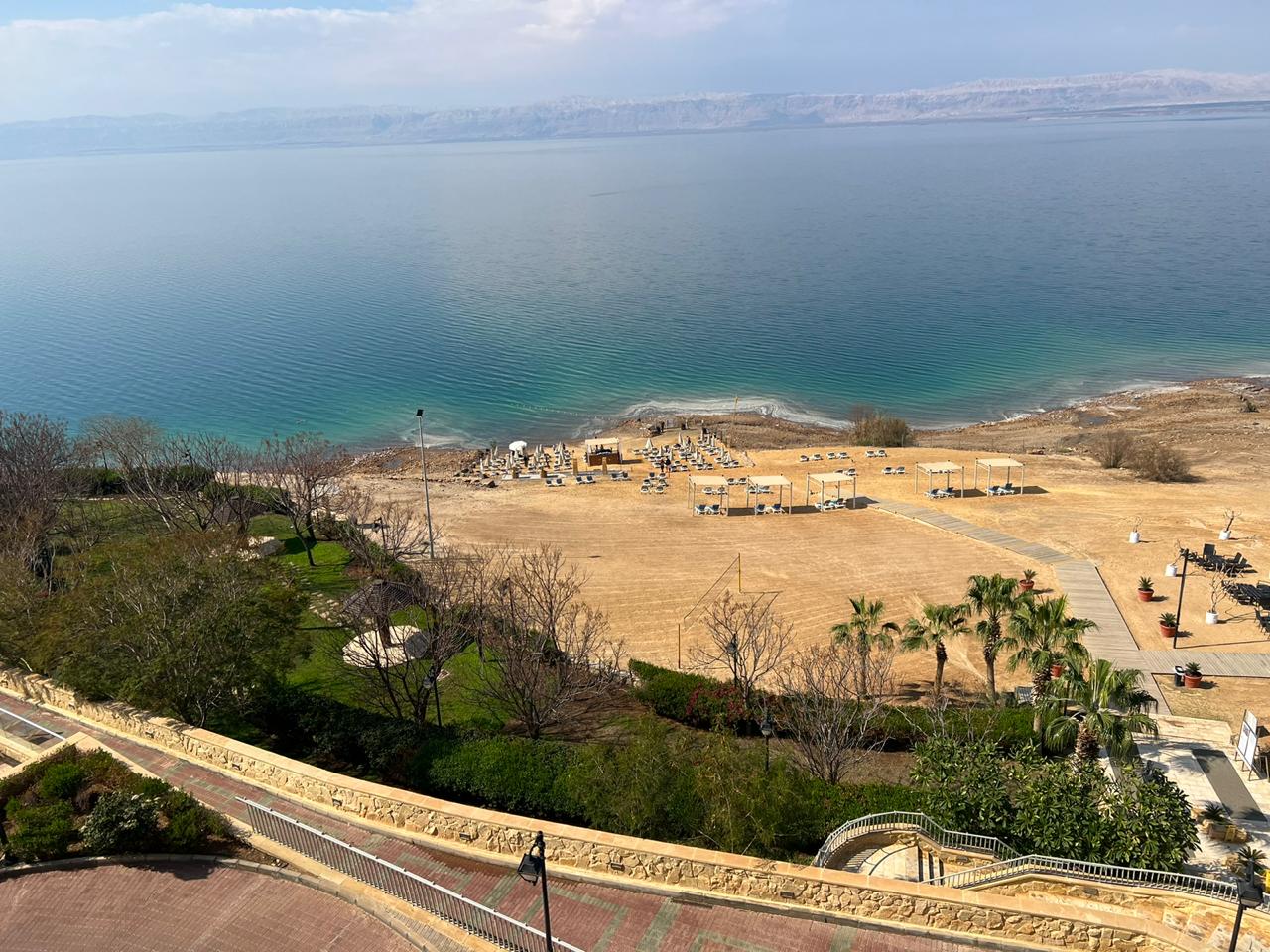Living in Jordan has completely changed my relationship with water.
How does this relate to Hope Forward? Let me explain. It’s a bit of a long story — a bit of a journey, even. I hope you’ll take it with me.
First off, some background information: Jordan is an arid country, and water is a precious resource. During my semester, I’ve had to adjust to taking fewer showers and washing my clothes less frequently. My program center and host family’s house even ran out of running water a few times, and we had to make do without for a couple hours until we could buy more. In addition, tap water in Jordan is not safe to drink. Water fountains are nonexistent — I’ve learned to always fill up my water bottle from my host family’s jug before I leave the house so that I’m not forced to buy bottled water if I become thirsty. The fact that water is scarce also means that it becomes more precious. In fact, some of the most meaningful moments I’ve experienced in Jordan have been centered around water.

Holy Days Collide
I was walking back to my homestay the evening of Good Friday. This year, Christian Holy Week took place during the month of Ramadan, the holiest month in Islam when observant Muslims fast during the day. In Jordan, Islam and Christianity coexist within a predominantly Muslim society. As a Christian living in Jordan, I was immersed in both religions, choosing to fast for Ramadan in solidarity with my Muslim host family, but also attending a church service the evening of Good Friday to practice my own faith.
On this particular day, I had miscalculated how long the walk home would take me. As I walked, I noticed that the sidewalks were emptying and the sun was dipping low in the sky. It was almost time to break the fast. I sped up my walk, hungry, and feeling irritated that I would not be home in time to eat iftar with my family.
Just then a car pulled up next to me. I stole a sideways glance and saw it was full of young men.
“Excuse me!” one called from the backseat. “Excuse me, miss!”
This is weird. I kept my gaze straight ahead, hoping they would drive away. I ran through a mental list of people in Amman I could call if the car kept following me.
“Excuse me!” he yelled again. I grabbed my phone out of my pocket, still pretending not to hear.
“Do you not want water?”
Wait, is he offering me water? I finally looked up. The man had opened the back door of the car. His arm was extended out, and in his hand was a small plastic bag with a cup of water, some candy and a date. The men in the car had never wanted to harass me; they were simply offering me food and water to break my fast.

The Dead Sea and Letting Go
I never thought I would visit the Dead Sea.
You know, the Dead Sea. The one so salty that it’s impossible for one’s body to sink. The one mentioned in the Bible. The famous one.
I had never traveled outside of the U.S. until I studied abroad. I dreamed about getting on a plane and flying across the Atlantic Ocean, about seeing places I had only ever read about in books. Facts about other countries sounded like fantasies. A sea that was impossible to sink in? There’s no way that could be true.

The Dead Sea was the destination of my study abroad program’s first excursion. It took place just a few weeks after I had found out I would be studying abroad in Jordan. My original location was Kigali, Rwanda. But about a week before I was supposed to leave, my admissions counselor called and told me that my program was being canceled. Instead of studying post-genocide restoration, she told me, I could choose a new program in an entirely different region.
Which led me, in a few rapid weeks, to buying a plane ticket to the Middle East. I spent a few days repeatedly reminding myself to not flush the toilet paper, and then, somehow, ended up bobbing on the surface of the bluest, saltiest water imaginable.
And it was even better than the books and pictures make it seem. Imagine pushing your body into water that pushes right back. The ground is sheets of salt that scratch your feet as you walk in. Once you are submerged past your hips, the water picks you up and carries you. It’s a little terrifying — even if you’re a good swimmer. It’s impossible to control your body in water this buoyant. But if you surrender control, the water lifts you into the warm sun and keeps your head above the surface. It’s magical.
Hope Forward and Grace
Okay, back to Hope Forward. Here is what I am trying to say with both of these stories: I am continually the recipient of gifts that I do not deserve and have no way to repay. I wasn’t financially able to pay for my college tuition or for a semester abroad without the help of Hope Forward. This is the most basic generosity. But above and beyond that, Hope Forward gave me the opportunity to receive these gifts and to see them for what they are: grace.
I had no reason to believe that I would ever get to swim in the Dead Sea or touch the Jordan River or hike in Petra or have any of the other amazing experiences that I have had during my time here. I never deserved any of these things, and I can never repay anyone for them. I will not be able to trace down the kind men who gave me water when I was thirsty during Ramadan to tell them thank you. I have no way of rewarding the Dead Sea for helping me to understand trust. This is the nature of water: it gives itself without expecting anything in return. It is all grace, only grace.
After I got home that night during Ramadan, my host dad told me that the people who distribute water in the streets before iftar are often Christians. Since they do not have an obligation to fast during the day, Christians have the energy and time to help Muslims break their fast and get home safely. I think this is beautiful: Christians are uniquely equipped to identify a need that exists for their Muslim brothers and sisters and step up to help.
I want to take this attitude with me when I arrive back in the United States. I want to see the needs that exist in my community and step up to help, knowing that I have been blessed with more generosity than I could ever imagine. Not expecting repayment, but hoping to spread more light in the world, since I have been the beneficiary of so much grace.



I was really moved by how Water and Grace were able to make the most of their international experience, even with limited mobility. Their story is a great reminder that no matter what challenges we face, there are still ways for us to continually learn from our experiences abroad.
This was a great post! The content was informative, and insightful. Thanks for sharing!
Water and Grace: Studying abroad as a Hope Forward student offers transformative experiences, cultural immersion, and endless opportunities for personal growth.
Studying overseas as a Hope Forward student provides life-changing chances for personal development, cultural immersion, and water and grace.
Outstanding blog post thanks for sharing
Nice Post..!! Studying abroad as a Hope Forward student sounds like an incredible experience! It’s inspiring to hear about your journey and how you navigated accessibility challenges with grace. Your story is a testament to the transformative power of education and the importance of inclusive opportunities for all students. Thank you for sharing your insights and shedding light on the value of water and grace in overcoming obstacles while studying abroad.
Nice Post.!! This insightful blog post sheds light on the transformative experience of studying abroad as a Hope Forward student, highlighting the intersection of water, grace, and personal growth.
Hi,
It’s been really a nice and interesting piece of content to read and hats off to your collection related to the rainwater harvesting.
Thanks for sharing such stuff with us.
We are also provide services and blogs related to rainwater filter,rainwater harvesting filter,best rainwater filter,rain water harvesting filter and etc.
This is a great blog, usually, I don’t post comments on blogs but I would like to say that this post forced me to do so!